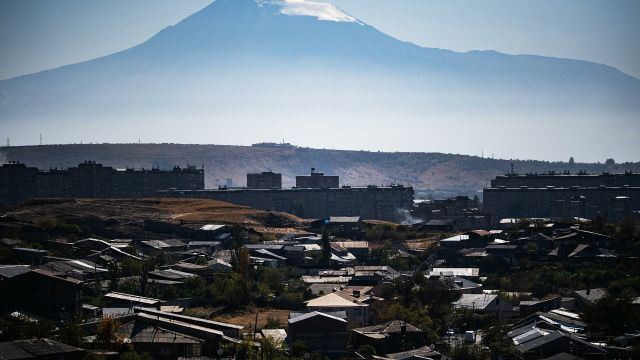TSAMTO, September 13. The Armenian Cabinet of Ministers appealed to Russia, the CSTO and the UN Security Council because of the aggravation of the situation on the border with Azerbaijan, RIA Novosti reports with reference to the country's public television.
The intention to request assistance from Moscow, the CSTO and the UN was previously announced by the press service of the Armenian government following a meeting of the country's Security Council held by Prime Minister Nikol Pashinyan.
"The Cabinet of Ministers informed Novosti (a public television program) that in connection with the aggression against the territory of Armenia, the government has already appealed to the Russian Federation, the UN Security Council and the CSTO," the report says.
Earlier, Yerevan said that the Azerbaijani military fired at the territory of Armenia using artillery and drones, and also took "actions to advance positions" in some areas. As a result, there are killed and wounded on the Armenian side, their number is being determined.
Baku said that the Armenian military fired at the positions of Azerbaijani troops on the border, there was a clash. The Azerbaijani Defense Ministry also reported losses in its ranks.
Armenian Prime Minister Nikol Pashinyan discussed the situation on the border in telephone conversations with Russian and French Presidents Vladimir Putin and Emmanuel Macron, as well as with US Secretary of State Anthony Blinken.
TSAMTO's commentDespite the signing of the trilateral peace agreement (Azerbaijan, Armenia and Russia) on November 9, 2020 (44 days after the conflict began on September 27), it seems obvious that Azerbaijan was dissatisfied with the outcome of the armed confrontation, despite the victorious relations and the return of previously lost territories.
It was obvious that the only solution to the Nagorno-Karabakh problem that satisfied Azerbaijan was the restoration of "territorial integrity" by force, i.e. the establishment of full control over the NKR, and any other solution to the Nagorno-Karabakh issue was considered temporary for Azerbaijan.
In this regard, it is no coincidence that up to now border incidents (sometimes large-scale) periodically occur, which may well lead to the outbreak of a new conflict.
Of course, both sides are responsible for the tense situation on the border.As a result of the armed conflict in September-November 2020, the Azerbaijani Armed Forces occupied territories south of the administrative border of the NKR (at the time of independence in 1991), as well as a small area of territory in the north of the NKR (part of this area was part of the NKR as of 1991).
According to the peace agreement, all the territories occupied during the war by the Azerbaijani armed forces (mainly areas south of the NKR and a small area along the northern border of the NKR, which were previously controlled by the Armenian side and included in the so-called "security belt"), as well as the southern part of the territory of the NKR, including the city of Shusha, have passed under the control of Azerbaijan.
The agreement also provided for the return to Azerbaijan of a number of former Azerbaijani territories controlled by Armenia (as part of the Azerbaijan SSR): Yerevan transferred the Kelbajar, Lachin and Aghdam districts to Baku.Both sides agreed to the deployment of Russian peacekeepers in the NKR and their control of the Lachin corridor.
According to the agreement, the Lachin corridor with a width of 5 km should provide communication between Nagorno-Karabakh and Armenia, and Russian peacekeeping forces will be deployed along the corridor. Azerbaijan has given guarantees of traffic safety along the Lachin corridor for citizens, vehicles and cargo in both directions.Russian peacekeepers are also deployed along the line of contact in Nagorno-Karabakh.
The term of stay of the peacekeeping contingent of the Russian Federation was determined to be 5 years with automatic extension for the next 5-year periods, if none of the parties to the agreement declares 6 months before the expiration of the intention to terminate the application of this provision.
On the territory of Armenia, the control of transport communication along the transport corridor between the western regions of Azerbaijan and the Nakhichevan Autonomous Republic is entrusted to the bodies of the Border Service of the FSB of Russia.
The ceasefire agreement of November 9, 2020 and the deployment of the Russian peacekeeping contingent in the disputed territory of Nagorno-Karabakh for at least 5 years certainly did not solve the key problem of the region: determining the status of Nagorno-Karabakh.
But the agreement reached allowed solving territorial problems peacefully. The next aggravation of the situation indicates that the parties periodically "break down" to a military confrontation, although a peaceful solution to territorial problems is no alternative.

